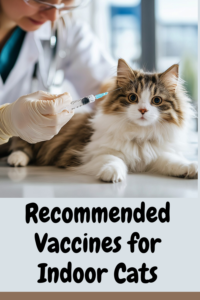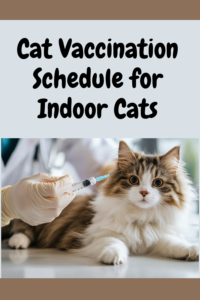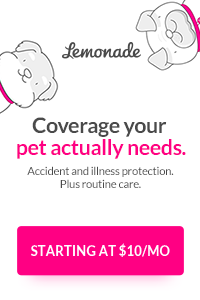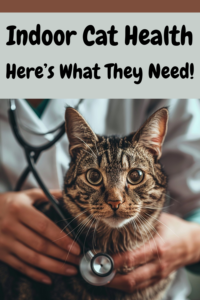Indoor cats may be susceptible to more than you think. They’re not exposed to anywhere near the things that outdoor cats are, but they still need regular medical care, and yes, indoor cats need shots.
In this post, we’ll cover:
-
- 5 Reasons Why Indoor Cats Need Shots
- Vaccines Recommended for Indoor Cats
- Cat Vaccination Schedule
- Veterinary Care for Indoor Cats
- Cat Pet Insurance
- Indoor Cat Health
Watch My Video: Do Indoor Cats Need Vaccinations?
This post contains affiliate links. If you make a purchase, I’ll earn a commission (at no extra cost to you). As an Amazon Associate, I earn from qualifying purchases. I donate 10% of my profits to animal charities.
Do Indoor Cats Need Shots?
It’s important that your indoor cat visit the vet once a year. The physical exam covers several important things like monitoring your cat’s weight, checking their blood pressure, heart rate and temperature.
Your veterinarian will look at your cat’s mouth and teeth and look inside their ears. These are all ways that any developing illness or condition can be detected early, which may prevent serious illness in the future.
Consider Getting Pet Insurance
For more about this, read my article (includes video), Is Cat Insurance Worth the Cost?
My recommendation for pet health insurance is Lemonade Pet Insurance. You can read my full review of Lemonade here, or get a free quote here.
For More Information About Indoor Cat Health
In that post, we cover:
-
- Do Indoor Cats Need Vaccinations?
- How Often to Take Your Cat to the Vet
- Senior Cat Health Questions
- Monitoring Your Cat’s Weight
- Early Detection of Cat Health Problems
- Protecting Cats from Fleas, Ticks and Heartworm
- Cat Health Insurance
- The Complete Cat Health Care Guide










